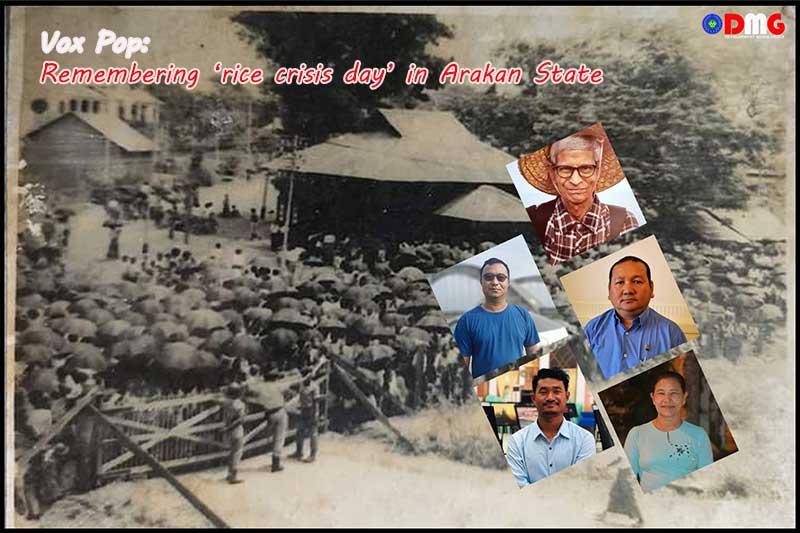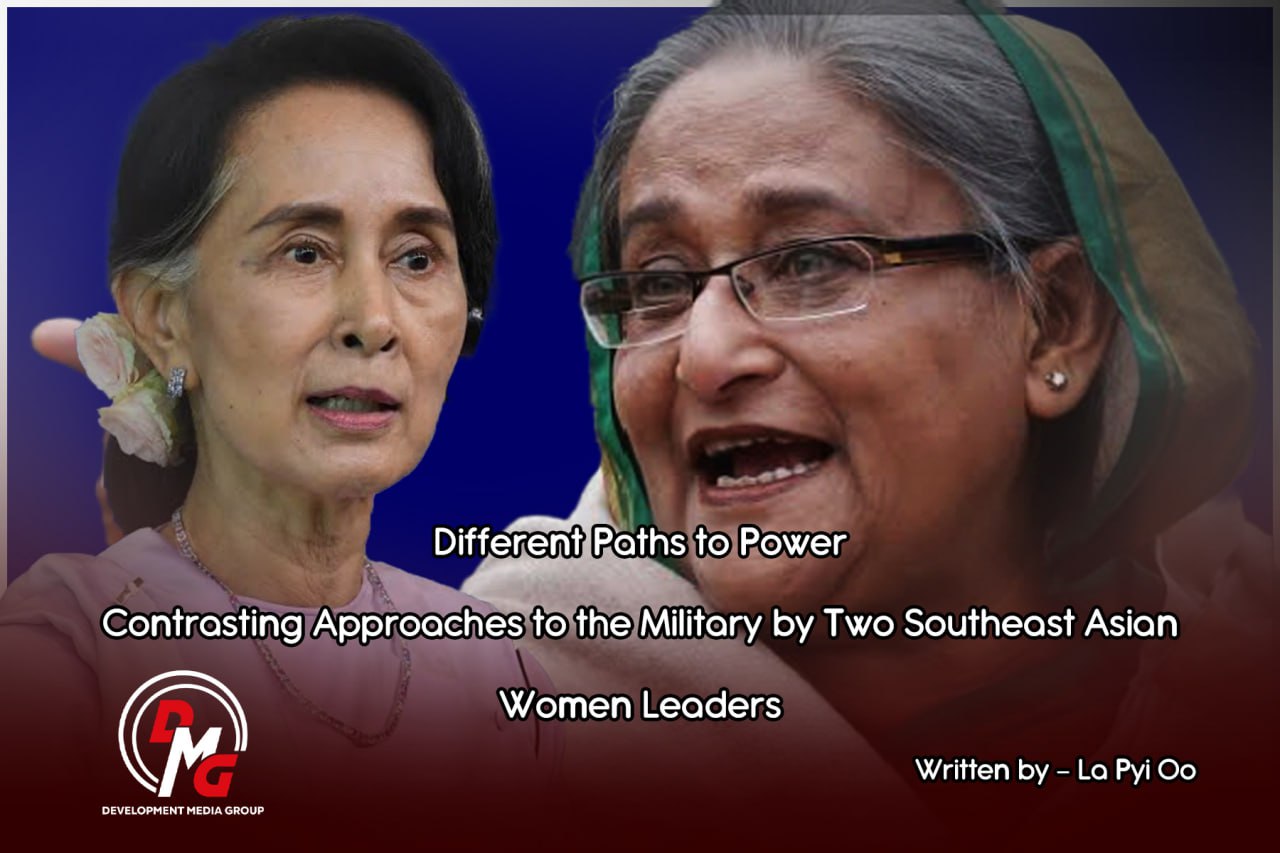Vox Pop: Remembering ‘rice crisis day’ in Arakan State
August 13 marked the 55th anniversary of “rice crisis day” in Arakan State, a date of tragic brutality in 1967, under the rule of dictator General Ne Win and his Burma Socialist Programme Party (BSPP). That year, Arakanese people faced severe food insecurity and starvation after a cyclone in May badly affected rice yields and the government refused to provide sufficient supplies of the stable grain, having instead over-allocated rice for export. Due to the scarcity, even those who could afford it were unable to buy rice. Some people in Arakan resorted to eating taro root and roselle, while others starved to death.
13 Aug 2022

13 August 2022, Sittwe
August 13 marked the 55th anniversary of “rice crisis day” in Arakan State, a date of tragic brutality in 1967, under the rule of dictator General Ne Win and his Burma Socialist Programme Party (BSPP). That year, Arakanese people faced severe food insecurity and starvation after a cyclone in May badly affected rice yields and the government refused to provide sufficient supplies of the stable grain, having instead over-allocated rice for export. Due to the scarcity, even those who could afford it were unable to buy rice. Some people in Arakan resorted to eating taro root and roselle, while others starved to death.
In Sittwe, residents reached their breaking point. A protest was staged on August 13 that the army cracked down on with deadly force, firing into the crowd and killing dozens, perhaps hundreds. While the official government narrative put the tally of dead at 24, it is a widely held belief that more than 300 people died on August 13, 1967.
“Rice crisis day” is commemorated to this day, though events have been more subdued or nonexistent over the two anniversaries in the post-coup period. The Arakan Students’ Union organised a poem recitation to mark rice crisis day this year.
On Saturday, DMG interviewed some who personally witnessed the crackdown, political and social activists, and members of younger generations who still do their part to keep the memory of rice crisis day alive.
U Khaing Hsan Aung || 88 Rakhine Generation Social Development Organization
Arakan State is one of the most rice-rich states in Myanmar. Successive governments have been able to export a lot of rice from Arakan State to foreign countries. The government bought a lot of rice from Arakan State for export in August 1967. At that time, there was almost no rice in the hands of Arakanese farmers. In August, when the situation was worsening, Arakanese people took to the streets to demand that the government sell rice that was bought for export, and the army brutally shot the protesters with automatic rifles.
How should I define it? It can be said that the BSPP was racist. There was a complete supply of rice in other states and regions, and even though rice was abundant in Arakan State, the Arakanese people reached the stage of rice starvation.
Therefore, it is important to have a government with a union spirit. We need a humane government. Not only that, but as long as there is discrimination, brutality and killings, we will not be able to build a union in the future. A union cannot be built as long as the army does not have the union spirit.
For this reason, it is important for any government to solve the livelihood problems of the people, in order to create a stable and peaceful situation. As long as the people’s livelihood is not secure, there will be public protests. Rice crisis day is a lesson for Arakan State. I just want to say that it is important for governments to build a prosperous union so that this kind of thing does not happen again.
Bagyi Kyaw || Arakanese author
We were at the front of the protest. Some people broke through fences to stage the protest. At that time, while the soldiers were getting into their vehicles, some young protestors threw sticks at them. There were no people to persuade the young protesters. Nowadays, some Buddhist monks might persuade the protesters. A captain got out of the vehicle and ordered his security members to shoot at the protesters who threw sticks at the soldiers. I turned around and saw some people lying there bleeding. We stepped over the dead bodies, crossed the stream in front of a rice mill, and ran toward the village of Kathel. That was the full sequence of events on August 13.
Households were provided with rice through a ration system at that time. People had to show their household certificates to buy rice from the government. Each adult was supplied with about eight pyi of rice and children about four pyi of rice per month. Rice crisis day is a big protest that happened because the people of Rakhine did not have enough food.
Daw Nyo Aye || Chairwoman || Rakhine Women’s Network
The Arakanese people are struggling to make ends meet, so they don’t have the conditions to commemorate rice crisis day. I sent alms to the monastery because I remembered the people who sacrificed their lives in the protest. I also participated in that protest with young student leaders. I must say that I escaped with my life only because I was not at the front of the protest.
At the protest, there were many Arakanese people who were shot and killed without showing any kind of sympathy. From then on, what stuck in my mind was seeing firsthand the brutality of those in power. That was an ugly incident in Arakan State. The government announced that 24 people were killed, but Arakanese people believed that over 300 people were killed on that day.
U Khaing Kaung San || Director || Wan Lark Rural Development Foundation
The people of Arakan do not forget the 55th anniversary of rice crisis day, and recognise it. Some people commemorate the event by donating offerings and alms to the monasteries. It’s a good thing that the next generation has the memory and awareness of the day. Anniversaries are a good thing to be aware of. It is a day that Arakanese people around the world remember as ‘rice crisis day’ in Arakan State, in which there was a revolt against the dictator during the Burma Socialist Programme Party.
Ko Kyaw Naing Htay || Arakanese student activist
We, the people of Arakan, defied the military dictator at that time by not fearing the law. It is a tradition worthy of imitation for us. We honour and respect the people who have given their lives.





.jpg)














